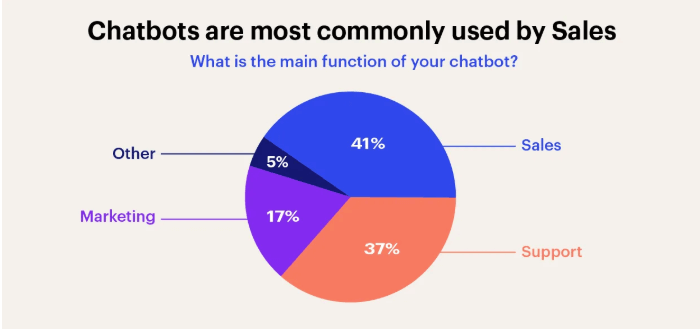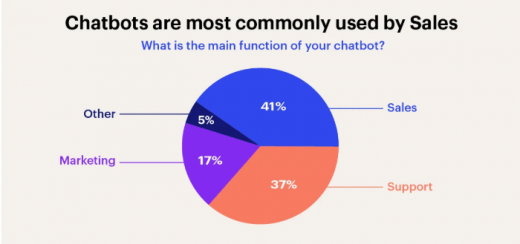Chatbots saved businesses $300,000 on average last year, study finds
Businesses report revenue growth and savings even as consumers indicate there is room for improvement.
While chatbots continue to increase user efficiencies, drive conversions and engage consumers, businesses are also reporting significant savings thanks to the technology according to findings from a recent Intercom study. Business leaders saved an average of $300,000 in 2019 from their chatbots, according to the report. Rising consumer expectations of chatbots show there is plenty of room for improvement.
The study also surveyed consumers and found that 74% of consumer respondents indicated that they expect to encounter a chatbot on a website, and 87% still prefer chatting with a human instead of a bot.
Why we should care
Chatbots are becoming more than just a common component of the marketing technology stack; the technology is forecasted to drive $112 billion in retail sales by 2023, according to an earlier study by Juniper Research.
Consumers increasingly expect some kind of chatbot accessibility when they visit a brand’s website. Organizations that incorporate chatbots into their web experiences are realizing savings and higher sell-through rates, according to the study. “Chatbots increased sales by an average of 67%, with 26% of all sales starting through a chatbot interaction,” the study found.
By streamlining sales, service and marketing communications through chatbots, teams can anticipate an increase in productivity in addition to increased conversions.
Sales and support are the primary users of chatbots in organizations, at 41% and 37% respectively.

More on the news
- Three-in-four consumers expect to encounter chatbots on a website, but only 15% of consumers prefer chatbots to humans for speedy interactions with brands.
- 35% of business leaders indicated that chatbots helped them close sales deals.
- The top three sales use cases include collecting information and qualifying leads, booking product demos and engaging site visitors.
Marketing Land – Internet Marketing News, Strategies & Tips
(20)



